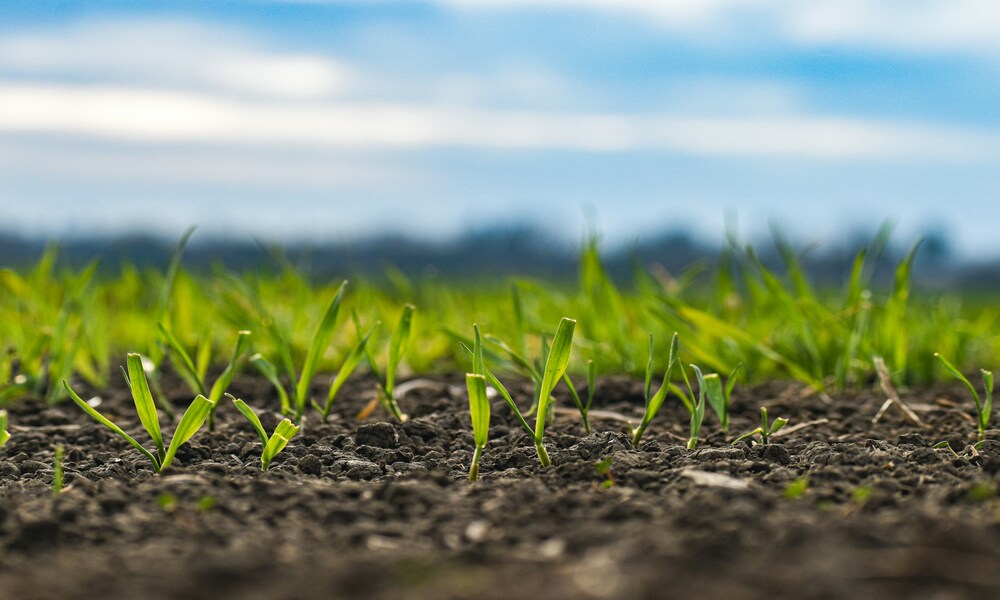September has been a mixed bag of opportunities for the agricultural sector and genuine concerns for many farming businesses. The government’s announcement of £12.6 million in new innovation funding provides welcome support for agricultural research and development, yet this welcome development coincides with serious disruption from the UK-US ethanol trade agreement that has already forced one UK bioethanol producer to close and another in emergency talks with the government about its survival.
Meanwhile, there have been mixed results across Scotland in the 2025 harvest season, with areas like Orkney enjoying exceptional harvest conditions while other growers across the country wrestle with spring barley quality issues that are undermining market prices. And finally, the latest round of wage increases, with the National Living Wage now at £12.21 per hour and further rises projected, is adding fresh pressure to farm budgets already stretched by volatile commodity prices and rising input costs. Enjoy reading our roundup of the stories that have been making the headlines in September.
£12.6 Million Available Through New Farming Innovation Programme Rounds
Two new competition rounds are opening this autumn under the Farming Innovation Programme, offering £12.6 million to support agricultural innovation across England.
The funding is split between Feasibility Studies (£4.8 million) and Small Research & Development Partnerships (£7.8 million). Both competitions encourage collaboration between research groups, farmers, growers, and foresters to develop solutions that improve productivity, sustainability, and resilience.
Rather than setting specific themes, the programme funds industry-identified priorities. This marks the fourth round for each competition, delivered with Innovate UK as part of the government’s commitment to allocate at least £200 million to the Farming Innovation Programme by 2030.
The feasibility projects test early-stage research ideas in real-world conditions, with funding between £200,000 and £500,000 provided over up to 24 months. The competition opens on 13th October, with guidance available from 29th September, and a consortia-building event on 14 October. Applications for funding close on the 3rd of December 2025.
The Small R&D Partnerships projects are designed to bring proven concepts closer to commercial use and will receive £1-3 million over up to 30 months. The competition opened on the 15th September with guidance already available and a consortia-building event on 18th September. Applications close on 5th November 2025.
The programme’s success is demonstrated through projects like RootWave, which developed electrical weed control technology that replaces chemical herbicides. This innovation reduces costs, prevents soil damage, and works in all weather conditions unlike traditional chemical treatments.
Both competitions require projects to focus on improving productivity, environmental sustainability, and resilience across England’s agricultural, horticultural, and forestry sectors.
UK-US Ethanol Deal Creates Uncertainty for Domestic Producers
A new UK-US trade agreement removing tariffs on American ethanol has raised significant concerns across the UK’s agricultural and bioethanol sectors.
The removal of the previous 19% tariff on US ethanol imports has severely affected UK bioethanol producers. Vivergo Fuels in Hull has ceased production, while Ensus on Teesside remains in emergency talks with the government seeking a financial survival package. Both facilities rely heavily on UK-grown wheat and supply domestic animal feed and carbon dioxide to the food sector, making them critical to the UK’s net zero and energy security strategies.
During President Trump’s UK state visit, US Agriculture Secretary Brooke Rollins described meetings with UK leaders as “productive”, particularly her discussions with newly appointed Defra Secretary Emma Reynolds. Ms Rollins promoted the expansion of American ethanol supply, including the transition from E10 to E15 fuel blends, describing it as a “win-win” that delivers affordable energy for UK families while opening markets for US producers.
US officials are pressing for wider access to UK markets for American food products, many of which are currently restricted by UK food safety, labelling, and animal welfare laws. While chlorinated poultry and hormone-treated beef remain banned, American producers argue these restrictions constitute “non-tariff barriers”. The UK government maintains these are “red lines” that will not be compromised.
The NFU and Dairy UK have written jointly to Prime Minister Sir Keir Starmer, warning that increased US market access could destabilise UK dairy farming by undermining food security and farm profitability. NFU Dairy Board Chairman Paul Tompkins highlighted the significant differences between UK and US dairy systems regarding scale, welfare, environmental requirements, and regulatory regimes.
The Save British Farming campaign group organised protests in Westminster, warning that increased US agricultural imports could create a “tsunami of cheap imports” threatening the majority of British farms.
Mixed Results Across Scotland’s 2025 Harvest Season
SRUC’s September crop update reveals significant regional variation in this year’s harvest performance, with some areas experiencing exceptional conditions while others face ongoing challenges.
While dry, settled weather aided early harvests and winter sowing across most regions, spring barley quality has emerged as a major concern. High screenings and elevated nitrogen levels are impacting marketability, with many growers struggling to meet malting barley specifications and facing substantial price deductions or relegation to the feed market.
Orkney experienced one of its easiest harvest seasons in living memory, with plentiful dry, sunny days allowing straightforward combining and baling with no rutted fields or uncut crop patches. However, yields remained variable depending on sowing dates and root development when dry spring weather commenced.
In contrast, the Borders achieved good yields overall but faced the same quality challenges with spring barley screenings and nitrogen levels affecting market access.
The early harvest has provided valuable time for autumn preparations, with oilseed rape drilling largely complete and showing good emergence. Many growers are taking advantage of improved ground conditions to establish winter wheat and barley, though some are monitoring October weather patterns before committing to cereal planting.
Livestock producers are reporting tighter than ideal forage availability for this time of year. Meanwhile, several farms are trialling green cover crops as potential Ecological Focus Area (EFA) options for 2026, responding to upcoming changes in environmental requirements.
The challenging malting barley marketing situation continues to influence forward planning, with some producers altering rotations to reduce spring barley acreage in favour of oilseed rape or winter wheat for 2026.
Farm Labour Costs Surge Amid Wage Pressures
UK farm businesses are facing escalating labour costs driven by wage inflation and statutory minimum wage increases, creating additional pressure on already tight margins.
The National Living Wage increased 6.7% to £12.21 per hour in April 2025, with further rises to £12.71 per hour projected for April 2026. Agricultural pay boards in Wales and Scotland have approved increases between 6.8% and 9.9% for craftsman rate workers, while English farms operate without formal wage guidance following the 2013 abolition of the Agricultural Wages Board.
Strutt & Parker analysis highlights that farm businesses face a challenging combination of factors including the phasing out of Basic Payments, volatile weather, lower commodity prices, and high input costs. With Consumer Prices Index inflation reaching 3.8% in July and economy-wide pay awards of at least 3%, agricultural employers must balance competitive wages against constrained profitability. Strutt and Parker has advised employers to consider comprehensive compensation packages beyond base wages. The accommodation offset for provided housing remains significantly below actual costs at £74.62 per week (equivalent to £1.87 per hour for a 40-hour week), creating opportunities to enhance total compensation value.
Research indicates that staff retention depends on workplace culture alongside competitive pay. It found that employees stay when they feel “respected, listened to, and given fair opportunities,” suggesting that fostering positive working environments can be as effective as wage increases for staff retention.
The firm recommends aligning wage review dates with the government’s annual National Living Wage assessment on 1 April to ensure compliance and competitive positioning in the tightening labour market.
Sources:
Defra farming blog https://defrafarming.blog.gov.uk/2025/09/01/coming-soon-over-12-million-to-fund-farm-innovation/
Farmers Weekly https://www.fwi.co.uk/business/rollins-calls-uk-us-ethanol-deal-a-win-win
Scotland’s Rural College https://www.sruc.ac.uk/all-news/crop-updates-september-2025/





